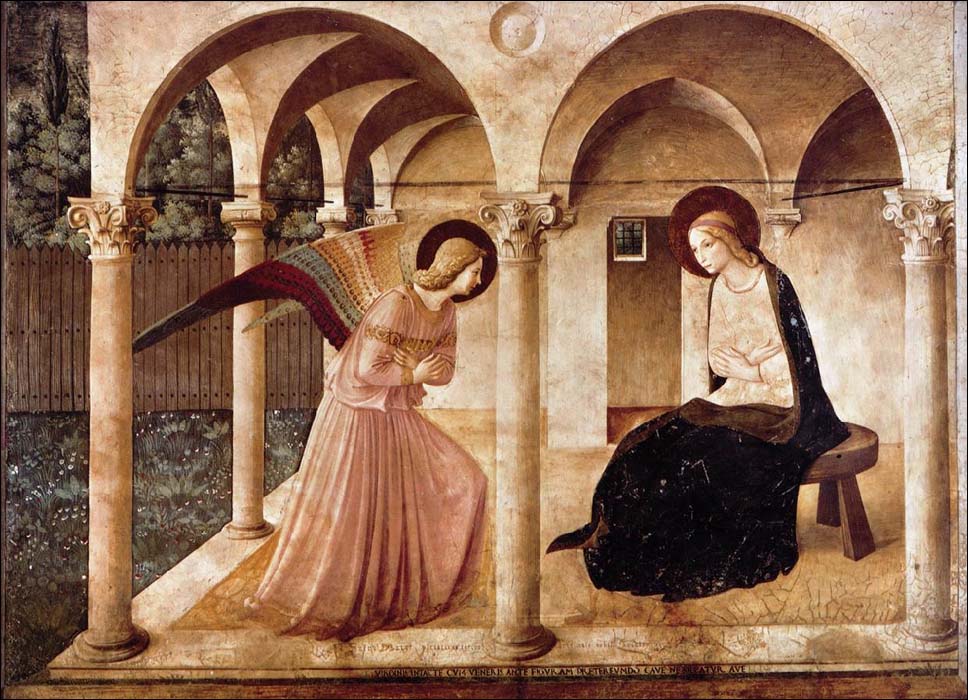The various ploys utilized in so-called “reverse psychology” succeed because they tap into our sinful, warped, and misguided free wills. In varying degrees, we balk at being told what to do (or not do) and often struggle against a spontaneous rebelliousness. Thus, when a certain response is desired, insisting on its opposite can sometimes achieve this end. Accordingly, the parent who wishes to have a child leave his computer games and play outside will insist that he/she only play inside. Integral to our warped sense of free will is our seeing it as an end in itself—and not as a means to an end. Consequently, being free to choose what is harmful is somehow thought preferable to being preserved from harm by not being given that choice.
In relation to today’s solemnity, we might ask if Mary was free to reject the angel’s message, and thus refuse to become the mother of Jesus. The natural presumption is that she was free and, if she was not free, there would be little that was admirable and meritorious in her “fiat.” Even more poignantly, did Jesus, in Gethsemane, really have a choice in submitting to his arrest and crucifixion? And what of us? Did we have a say in becoming monks, or was it preordained from all eternity? If, so, did we then really have a choice in donning the Cistercian habit?
Well, if we consider that saying “no” to God and rebelling against his will for our lives risks our alienation from him, and a consequent lifetime of misery and unhappiness, then we really didn’t have a choice. However, when free will and choice are not understood as ends or values in themselves, but in service of our eternal happiness, then forgoing our capacity to choose in certain instances, while constricting our freedom in the short term, can actually make possible the attainment of ultimate freedom—that which we shall fully enjoy only in eternal life.
For although, we presently possess the ability to choose good or evil—often mistaking one for the other—we believe this will not be the case after death. For then we will fully recognize evil for what it is, and no longer be enticed by its seductive but empty promises. So even though no longer being able to choose evil may sound like a curtailing of our freedom, it is quite the contrary. Thus, Saint Augustine can insist that although the rational creature able to choose not to sin is good, the one which cannot sin at all, is better. And one reason it is better is that the latter is a will not only strengthened against the compulsions of sin (and thus able to resist evil), but also a will freed from the delusion that would lead to mistakenly seeking the heart’s happiness and peace in anything other than God.
William of Saint Thierry, describes this same graced inability to sin when he asserts that to will what God wills is already to be like God, to able to will only what God wills is already to be what God is. And this is surely what Mary was when she proclaimed her “fiat” and embraced God’s plan for our salvation. And though there is a sense in which she could not have said “no” without slipping into untruth and irrationality, her “yes” was totally and lovingly free—free from compulsion and free from illusion and ignorance. What was hers by the grace of her Immaculate Conception, can be ours too if we will but trust that each present act of self-denying obedience to God’s will is actually a step closer to that true freedom that marks us as God’s beloved children. Resisting the urge to rebel and trustingly uttering our “fiat” makes us, in the words of William, one with God, and one spirit with him—not only with the unity which comes from willing the same thing, but with a greater fullness of virtue that is reflected in the inability to will anything else.
